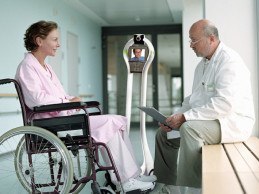The face of consumerism is rapidly changing in the age of technology. Convenience, personalization, and long-term benefits are of paramount concern to developers as consumers increasingly prioritize experience over possessions. The five-star rating format and other consumer-friendly features of sites like Amazon, Yelp, and TripAdvisor have been shaping consumer behavior and expectations for more than a decade. Direct-to-consumer brands like BirchBox, ThirdLove, and StitchFix are revolutionizing
Read More
Health IT & Digital Health-Opinion | Op-Eds | Guest Columns | Analysis, Insights - HIT Consultant
Data Collection Challenges in Healthcare and How to Overcome Them
While each industry has its own regulatory and governance challenges when it comes to data collection, storage, and management, the struggles of the healthcare industry are unique. Often times, the data collected in healthcare is complex and is governed by extremely stringent regulations.Most healthcare providers collect data using a variety of forms such as patient intake forms, consent forms, treatment evaluation and health assessment forms among others. Once this data is collected, it
Read More
7 Key Ways to Liberate, Rather Than Oppress Physicians
What if LeBron James spent half his day manning the ticket windows and phone lines for the Los Angeles Lakers? Would he be as great a basketball player as we know him? Or would he be completely satisfied with the road he went down? James is one of the best basketball players of our time, and none of his accomplishments would be nearly as extensive if he didn’t do what he did best- play the game.That is one of the biggest problems in healthcare. The physicians, the ones standing on the front
Read More
The Future Role of Robots and Humans in Caretaking
Visit the research facilities of the Georgia Institute of Technology. You may meet Darwin, a pint-sized robot that helps patients meet physical therapy goals. From enhancing a surgeon’s precision to disposing of medical waste to monitoring health metrics, artificial intelligence (AI) is making a big impact on the sector. Even the pint-sized robots are doing big things in healthcare. It will be fascinating to see where it all goes. As populations age, one area robots could help tremendously is
Read More
3 Ways Automation & Integration Is Disrupting the HIT Status Quo
In the history of healthcare information technology (HIT), there is clear evidence that technology systems have been designed to provide individual solutions, instead of considering a provider’s workflow holistically. In the late 1980’s and early 1990’s, practice management (PM) systems offered medical practices the opportunity to automate their day-to-day operations. Then the electronic health record (EHR) became mainstream in the late 1990’s and early 2000’s, to electronically store patient
Read More
The Short List of Remaining Health IT Interoperability Obstacles is Significant
Earlier this year, the ONC released the Trusted Exchange Framework and Common Agreement (TEFCA), which responds to a mandate included in 2016’s 21st Century Cures Act and lays out principles, terms and conditions on which to base an interoperability framework that healthcare organizations can embrace. “This means patients who have received care from multiple doctors and hospitals should have their medical history electronically accessible on demand by any other treating provider in a network
Read More
8 Tips for Urgent Care Clinics to Optimize Revenue & Remain Profitable
As the 2017-18 flu season winds down, it’s become clear that it was one for the record books. With the onset coming early and strong, emergency departments, primary care physicians, and urgent care clinics all over the country were overrun with patients waiting in line to see a doctor.While this had a negative impact on a large portion of the U.S. population, anyone involved in the on-demand healthcare space knows that the flu season and resulting increase in patient volume tends to feed the
Read More
The Existing Challenges with EHRs and Physicians’ Workflows
EHRs grew out of the vast computers that looked after a hospital’s internal processes. The physician workflows, on the other hand, were an afterthought. Imagine a Wendy’s restaurant. You place an order and the guy at the counter rings up and relays your order to the kitchen. When the order comes, the fry guy drops a basket of fries in the fryer, the guy at the burger counter flips a patty, the girl over at the soda machine fills up your choice of soda, arranges your order on a tray, and rests it
Read More
The Patient Experience and…Revenue Cycle Operations? The Two Are More Interlinked than You Might Think.
Think back to the last time you read a negative review about a restaurant. After reading the review, you probably dismissed the restaurant and considered other places to eat.Now, imagine you’re a patient considering options for an outpatient procedure and you came upon negative reviews about a provider. Chances are, you probably skipped that provider and opted for a consult with someone else. As providers, how can we fix this? Now, more than ever, patient satisfaction matters, especially given
Read More
The Telehealth Movement – Access, Value, Convenience
Healthcare, like all other industries, is experiencing a phase of rapid transformation due to the increased use of technology.“We’re entering a second wave of health innovation, where new business models, exciting technologies, and exciting leaders will emerge,” said Unity Stoakes, Co-Founder & President, StartUp Health in the company’s 2017 Year End Report. Telehealth, or the provision of healthcare via telecommunication networks, is not new – but it’s now becoming a hot suite of
Read More










